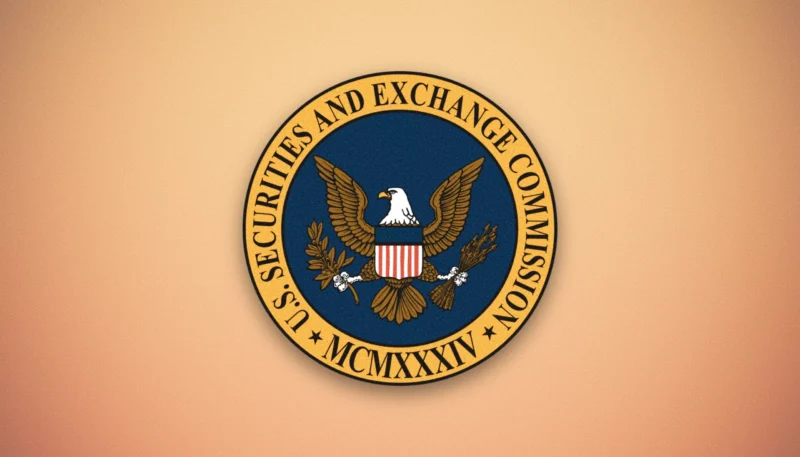This post is the third in a series examining the impact of the JOBS Act one year after its passage and focuses on the progress of implementing the repeal of the ban on general solicitation with respect to certain Rule 506 offerings.
In the first post of this series, I discussed the disappointment experienced by many proponents of loosened securities regulations with the implementation of the Jumpstart Our Business Startups Act (or JOBS Act). In this third post, we’ll look at the first part of Title II of the JOBS Act (namely Section 201(a) and (b)), which directs the SEC to permit general solicitation in some Rule 506 offerings.
Title II of the JOBS Act does not repeal the ban on general solicitation associated with all private placements; instead, it directs the SEC to amend Rule 506 and Rule 144A [1] to allow for general solicitation if certain additional conditions are met. Those conditions are: (1) all purchasers must be accredited investors and (2) the issuer must take reasonable steps to verify that all purchasers are indeed accredited investors. After much delay, the SEC finally issued a preliminary rule in August of 2012 (I previously discussed the delay here and the substance of the preliminary rule here). In the proposed rule, the SEC essentially parroted the wording of the JOBS Act and declined to provide for a safe harbor in the regulations to further define what “reasonable steps” actually means. Instead, the SEC stated that whether the verification steps taken are reasonable would depend “on the particular facts and circumstances of each transaction.” The SEC did give extensive suggestions and examples of what reasonable steps would be required in various situations in its commentary to the proposed rule.
A number of my fellow bloggers thought that the SEC’s proposal struck the right balance, including William Carleton and Joe Wallin, and I agree with most of their points. However, when the preliminary rule was originally proposed, I was concerned that the lack of a safe harbor would inject too much uncertainty into the exemption and that the SEC would face considerable criticism from pro-business groups because of this. Instead, it turned out that pro-business groups were mostly supportive, and asked only for various minor clarifications. For the most part, pro-business groups did not have a major issue with the lack of a safe harbor; in fact the National Small Business Association was concerned that any safe harbor would become the de facto rule, and thus if a proposed safe harbor’s requirements were too burdensome, the benefits of Title II would be lost.
Besides that lack of clarity, you might think that merely parroting the wording of the JOBS Act would not be particularly controversial, but you’d be wrong. The preliminary rule unleashed a torrent of critical comments, particularly from investor protection advocates. Here are some examples of their comments and suggested changes:
- The SEC’s Investor Advisory Committee commented that the proposed rule should go further to protect investors. It recommended that the SEC: (1) require the filing of either a new “Form GS” or a revised Form D; (2) require that all solicitation material be furnished to the SEC; (3) adopt a safe harbor for verification, rather than reasonable belief, of accredited investor status, including standards; (4) make the filing of Form D a condition for relying on the Regulation D exemption; (5) ensure that performance claims in solicitation materials are based on performance reporting standards; (6) amend the definition of “accredited investor” to require greater financial sophistication; and (7) fulfill the Dodd-Frank Act Section 926 mandate to implement rules disqualifying certain “bad actors” from relying on Rule 506.
- The North American Securities Administrators Association, Inc. (NASAA), composed of state securities regulators, professed itself “greatly disappointed” with the proposed rule because it fails to provide guidance to issuers or protections for investors. The NASAA’s recommendations were as follows (1) the SEC must consider the impact on state-level enforcement; (2) the rule should require a more detailed Form D to be filed before any general advertising and after the offering, and failure to file the Form D must result in the loss of the exemption; (3) the SEC should establish non-exclusive safe harbors for the verification of accredited investors; (4) the rule should include disqualification provisions for bad actors as mandated by the Dodd-Frank Act two years ago; (5) the SEC should place reasonable restrictions on advertising by issuers and private funds; and (6) the SEC should clarify what ancillary services are permissible for new platforms that facilitate securities sales under Rule 506.
- The Consumer Federation of America (CFA) wrote to express strong opposition to the proposed rule, commenting that it fails to protect investors and maintain market integrity. Incensed that the SEC requested comment only on the issues of verification of accredited investor status and the addition of a checkbox to Form D and not on alternative regulatory approaches, the CFA stated that “it would not be possible to adopt a minimally acceptable rule based on this proposing release.” The CFA also criticized the proposal because it covered private funds such as hedge funds and private equity funds.
While I certainly understand the concerns of investor protection groups, many of the changes requested are simply outside of the scope of what Congress intended when it passed the JOBS Act. They represent a longstanding wish list for proponents of more stringent securities laws. For instance, making the failure to file a Form D result in a loss of the federal and state Rule 506 exemption is something that many state securities regulators have wanted for some time but is a really bad idea and has nothing to do with the ban on general solicitation. That said, the fact that we haven’t heard anything from the SEC since August indicates that the SEC is taking the investor-protection concerns raised very seriously, and so there is a good chance the eventual rule will be more restrictive than the proposed rule. The timing of any final rule remains unknown. In retrospect, it probably would have been more effective for Congress to have created a new statutory exemption in the Securities Act in lieu of asking the SEC to issue a rule.
Next time, I’ll cover the second half of Title II of the JOBS Act, which relates to online angel investing platforms.
Footnotes
[1] Rule 144A is another private placement exemption involving sales of securities to certain institutional investors. Since it isn’t applicable to most issuers and investors (at least in the startup and private fund world), I won’t cover it here. You can read more about Rule 144A here.
© 2013 Alexander J. Davie — This article is for general information only. The information presented should not be construed to be formal legal advice nor the formation of a lawyer/client relationship.




